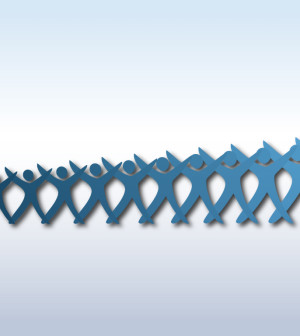- Could Your Grocery Store Meat Be Causing Recurring UTIs?
- Are You Making This Expensive Thermostat Error This Winter?
- Recognizing the Signs of Hypothyroidism
- 10 Strategies to Overcome Insomnia
- Could Artificial Sweeteners Be Aging the Brain Faster?
- Techniques for Soothing Your Nervous System
- Does the Water in Your House Smell Funny? Here’s Why
- Can a Daily Dose of Apple Cider Vinegar Actually Aid Weight Loss?
- 6 Health Beverages That Can Actually Spike Your Blood Sugar
- Treatment Options for Social Anxiety Disorder
Need to Boost Your Memory? Then Get Your Zzzz’s

A good night’s sleep can help you remember new faces and names, researchers report.
The researchers showed 20 photos of faces with matching names to 14 volunteers in their 20s. Twelve hours later, participants were shown the photos again and asked if the faces and names matched.
The test was done twice — once after the participants had slept for up to eight hours and once with a period of regular day activities in between. After sleeping, the participants correctly matched 12 percent more of the faces and names.
How long or how deeply volunteers slept did not influence their ability to match faces and names. But, more research is needed to find out if these factors are important, according to the authors of the study published recently in the journal Neurobiology of Learning and Memory.
“We know that many different kinds of memories are improved with sleep. While a couple of studies have looked at how naps might affect our ability to learn new faces and names, no previous studies have looked at the impact of a full night of sleep in between learning and being tested,” corresponding author Jeanne Duffy said in a news release from Brigham and Women’s Hospital in Boston. Duffy is an associate neuroscientist in the hospital’s division of sleep and circadian disorders.
“We found that when participants were given the opportunity to have a full night’s sleep, their ability to correctly identify the name associated with a face — and their confidence in their answers — significantly improved,” she said.
The findings suggest that getting a good night’s sleep after learning new things may help people retain more of that new information, according to the researchers. This study looked at young adults, but the authors want to conduct similar studies in people of all ages, including older adults.
“Sleep is important for learning new information. As people get older, they are more likely to develop sleep disruptions and sleep disorders, which may in turn cause memory issues,” Duffy said. “By addressing issues with sleep, we may be able to affect people’s ability to learn things at all different ages.”
More information
The U.S. National Institutes of Health has more about sleep and memory.
Source: HealthDay
Copyright © 2026 HealthDay. All rights reserved.










